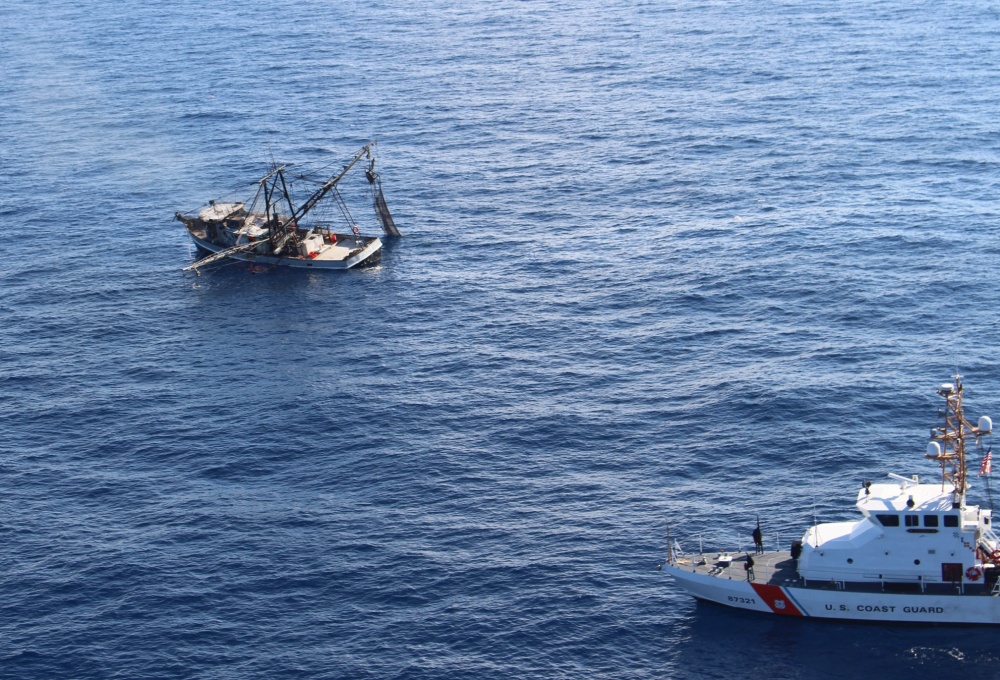The 79-foot Pacific Paradise remains stuck in the waters of Waikiki off of Honolulu, Hawaii, a full two weeks after the boat ran aground with 20 fishermen and 13,000 gallons of fuel on board.
The captain was the only U.S. citizen onboard — the rest were foreign men, and only five of them had fishing licenses registered with the state. According to reports, the men were onboard for at least 12 days on a trip from American Samoa to Hawaii before they crashed.
The Hawaii fishing fleet has been eyed carefully after an Associated Press report found evidence of labor abuses within the industry last fall. News of the Pacific Paradise grounding quickly made the rounds in local and national outlets with many reports focusing on worker safety. But Sean Martin, president of the Hawaii Longline Association, said aside from the grounding, this was business as usual for the fleet.
“It’s frustrating because the implication is that there’s human trafficking going on, and that’s false,” he said. “We’re constantly trying to make people aware that this isn’t a behind-the-scenes action. There is a system in place for foreign crew to come and work on U.S. fishing boats.”
According to Martin, there’s a process through which Hawaii fishing operations can find and vet foreign fishermen — generally from Vietnam, Indonesia, Philippines and Kiribati — for U.S. employment. Those fishermen are flown to American Samoa, where they must be picked up and taken to Hawaii by boat. Because the men are not authorized to enter the country, Customs and Border Protection agents are strict about when these transportation boats can arrive in order to document foreign workers properly. Boats are required to give 96 hours’ notice of their arrival in U.S. waters and are given permission to dock on a specific morning.
Martin hadn’t spoken with the captain of the grounded vessel, as the association is not involved with the incident in any official capacity, but said he assumed the boat had arrived early, shut down to drift until it was allowed to dock in the morning, and currents offshore pushed them up onto the barrier reef in Waikiki.
Martin said he received calls asking about the accident and citing reports that some foreign workers had escaped and disappeared into the U.S. population. “But I talked to Customs and Border Protection directly about it,” Martin added. “And they said everyone was accounted for, and they were processed and put on the correct boats the next morning.”
The five fishermen who already had licenses were likely workers who were working in the fleet and accompanying the captain during the transportation trip, said Martin.
After numerous failed salvage efforts, the Pacific Paradise is still grounded with no clear plan for removal. The vessel is no longer stuck on coral, but shallow waters have made salvage operations difficult, according to reports. The majority of fuel has been removed from the vessel, and officials are watching the situation carefully.
“They’re being cautious to minimize damage to the coral. I don’t think the boat will be salvageable. They might have to take it out in pieces,” said Martin.







